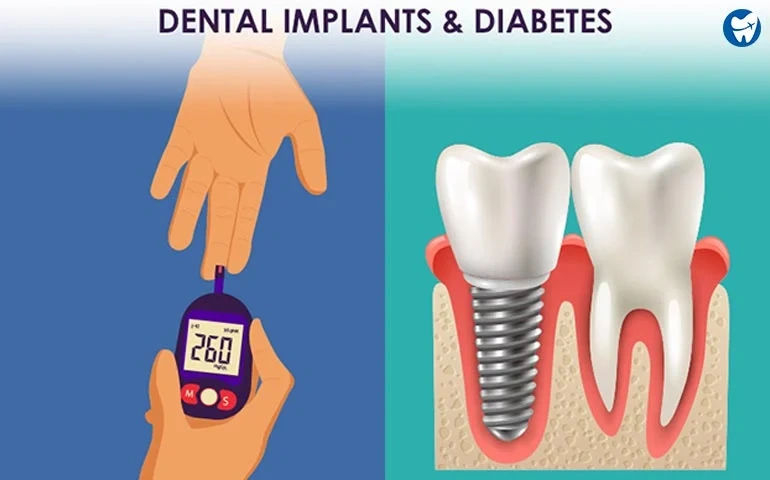Recover Quickly After Wisdom Tooth Removal: Our Care Tips

Wisdom tooth removal, also known as third molar extraction, is a common dental procedure that many individuals undergo at some point in their lives. While this dental surgery is routine, it can still leave you feeling uncomfortable for a few days. However, with the right care and attention to your recovery, you can minimize discomfort and accelerate the healing process. In this blog post, we will explore essential care tips to help you recover quickly after wisdom tooth removal, ensuring a smoother journey to oral health. Let's delve into the world of wisdom tooth extraction and how to make the recovery process as painless as possible.
- Understanding Wisdom Tooth Removal
- Preparing for Wisdom Tooth Removal
- The Wisdom Tooth Removal Procedure
- Post-Operative Care
- Long-Term Oral Health
- Managing Discomfort and Pain
- Nutrition and Hydration
- Oral Hygiene Techniques
- Returning to Normal Activities
- Potential Complications and When to Seek Help
- Patience and Healing Time
Understanding Wisdom Tooth Removal
Wisdom teeth, also known as third molars, typically emerge in late adolescence or early adulthood. However, due to limited space in the jaw, these teeth often become impacted or grow in at an angle, leading to various dental problems. Wisdom tooth removal becomes necessary when:
- Impaction:
Wisdom teeth can become impacted, which means they don't fully emerge from the gum line. This can cause pain, infection, and damage to adjacent teeth.
- Crowding:
The presence of wisdom teeth can lead to overcrowding, shifting other teeth out of alignment.
- Infection:
Partially erupted wisdom teeth can create pockets where bacteria can accumulate, leading to gum infections and abscesses.
- Gum Disease:
Wisdom teeth are located at the back of the mouth, making them challenging to clean properly. This increases the risk of gum disease and cavities.
Understanding these issues and their potential complications is crucial in appreciating the necessity of wisdom tooth removal.
Preparing for Wisdom Tooth Removal
Proper preparation can make the day of the surgery more manageable and aid in a smoother recovery. Consider the following preparation steps:
1. Consultation:
Schedule an initial consultation with your oral surgeon or dentist to discuss the procedure and ask any questions you may have.
2. Pre-surgery Instructions:
Follow any fasting instructions provided by your healthcare provider, especially if you'll be under general ANAESTHESIA. Also, ensure you have any prescribed medications filled and ready.
3. Transportation:
Arrange for a friend or family member to drive you to and from the procedure. You may be groggy afterward, so it's unsafe to drive.
4. Comfortable Recovery Space:
Set up a comfortable area at home where you can rest. Ensure you have plenty of pillows to prop yourself up while sleeping to minimize swelling.
5. Soft Food and Supplies:
Stock up on soft, nutritious foods like yogurt, mashed potatoes, and soups. Also, have ice packs and gauze handy for post-surgery care.
The Wisdom Tooth Removal Procedure
Understanding what happens during the actual procedure can alleviate anxiety. A typical wisdom tooth extraction procedure involves:
- ANAESTHESIA:
You will receive local ANAESTHESIA to numb the area around the tooth or general ANAESTHESIA if multiple teeth are being removed.
- Tooth Extraction:
The oral surgeon will make an incision in the gum tissue if necessary, remove the tooth, and stitch up the incision if required.
- Duration:
The procedure usually takes around 30 minutes, but this can vary depending on the complexity of the case.
Post-Operative Care
Post-operative care is crucial for a speedy recovery. Here's a more in-depth look at caring for yourself after wisdom tooth removal:
1. Pain Management:
Follow your dentist's instructions for pain management. Over-the-counter pain relievers and prescribed medications should be taken as directed.
2. Swelling and Bruising:
Apply ice packs to the affected area in the first 24-48 hours to reduce swelling. You may experience some bruising, which is normal and should subside over time.
3. Oral Hygiene:
Maintain good oral hygiene by gently rinsing your mouth with warm saltwater after meals and before bed. Avoid brushing near the surgical site for the first few days.
4. Diet:
Stick to a soft-food diet to avoid irritation or injury to the surgical area. Stays hydrated but avoid using straws, as the sucking motion can dislodge blood clots.
5. Rest and Recovery:
Ensure you get plenty of rest to aid in the healing process. Avoid strenuous activities for a few days.
6. Potential Complications:
Be vigilant for signs of infection (increased pain, swelling, and fever) or excessive bleeding. If you experience these symptoms, contact your dentist or oral surgeon immediately.
Long-Term Oral Health
Emphasize the long-term benefits of wisdom tooth removal, such as preventing future dental problems like crowding, infection, and gum disease. Removing problematic wisdom teeth can contribute to a healthier overall oral environment and prevent complications down the road.
Managing Discomfort and Pain
Recovery from wisdom tooth removal often involves some discomfort and pain. In this section, we'll delve into strategies for managing these sensations effectively:
- Medication:
Discuss the importance of taking prescribed pain medications as directed by your dentist or oral surgeon. Also, mention the safe use of over-the-counter pain relievers, if recommended.
- Cold Compresses:
Explain how applying cold compresses to the outside of your cheek near the surgical area can help reduce pain and swelling.
- Elevation:
Suggest using an extra pillow to keep your head elevated while sleeping. This can help minimize swelling and discomfort.
Nutrition and Hydration
Proper nutrition and hydration play a significant role in the healing process. In this section, elaborate on the importance of maintaining a balanced diet and staying hydrated:
- Soft Foods:
Provide a list of soft, nutritious foods that are easy to eat post-surgery. Include options like smoothies, oatmeal, scrambled eggs, and yogurt.
- Avoid Certain Foods:
Highlight the importance of avoiding crunchy, spicy, and acidic foods that can irritate the surgical site.
- Hydration:
Emphasize the need to stay hydrated by drinking water throughout the day. Remind readers to use a glass or sip from a bottle to avoid using straws during the initial healing period.
Oral Hygiene Techniques
Maintaining good oral hygiene is vital for preventing infection and promoting healing. This section can go into detail on how to care for your mouth after wisdom tooth removal:
- Rinsing:
Explain how gentle rinsing with warm saltwater can help keep the surgical area clean and reduce the risk of infection.
- Avoiding Brushing:
Reinforce the importance of avoiding brushing near the surgical site for the first few days to prevent irritation.
- Dental Products:
Suggest using a soft-bristle toothbrush and a mild, alcohol-free mouthwash after the initial healing period.
Returning to Normal Activities
Recovery doesn't last forever, and it's essential to know when and how to gradually return to your regular routine. Cover these points:
- Work and School:
Offer guidance on when it's safe to return to work or school after the procedure. Mention that it can vary depending on the individual and the complexity of the surgery.
- Physical Activities:
Explain the importance of avoiding strenuous physical activities and exercise for a specific period, as recommended by your oral surgeon.
- Follow-Up Appointments:
Mention the necessity of attending follow-up appointments with your dentist or oral surgeon to assess healing progress and remove stitches if required.
Potential Complications and When to Seek Help
Despite following all the care tips, complications can occasionally arise. This section should educate readers about potential issues and when to seek professional help:
- Infection Signs:
Detail the signs of infection, such as increasing pain, swelling, fever, or discharge from the surgical site. Stress the importance of contacting your dentist immediately if these symptoms occur.
- Excessive Bleeding:
Explain that a small amount of bleeding is normal, but excessive bleeding that doesn't stop with gentle pressure on gauze is a concern that requires prompt attention.
Patience and Healing Time
End the blog by emphasizing that everyone's healing process is unique, and it's essential to be patient. Provide a general timeline for recovery, explaining that while some discomfort and swelling are normal, these issues will gradually improve over time. Encourage readers not to rush their recovery and to prioritize their oral health.
Conclusion
Wrap up the blog post by reiterating the importance of following these care tips for a smooth recovery after wisdom tooth removal. Encourage readers to consult with their dental professionals for personalized advice and support throughout their recovery journey. Remind them that by adhering to these guidelines, they can make the healing process more comfortable and ensure a brighter dental future.
- A-3, Natraj Nagar near Imli Phatak, Jaipur-302015
- +91 9945826926
- contact@amddentalclinic.com

How Diabetes Affects Dental Implants & Gum Health
Discover how diabetes impacts dental implants and gum health. Learn expert tips from AMD Dental Clinic to protect your smile. Read more today!

Is a Dental Implant the Only Option for Replacing a Missing Tooth?
Discover alternatives to dental implants for missing teeth! Explore expert insights from Dr. Mili Gupta at AMD Dental Clinic. Read now to learn more!

Why Dentists Recommend Dental Implants Over Bridges & Dentures | Expert Guide by a Prosthodontist in Jaipur
Discover why dental implants are preferred over bridges & dentures. Learn expert insights from Dr. Mili Gupta at AMD Dental Clinic, Jaipur. Read now!

